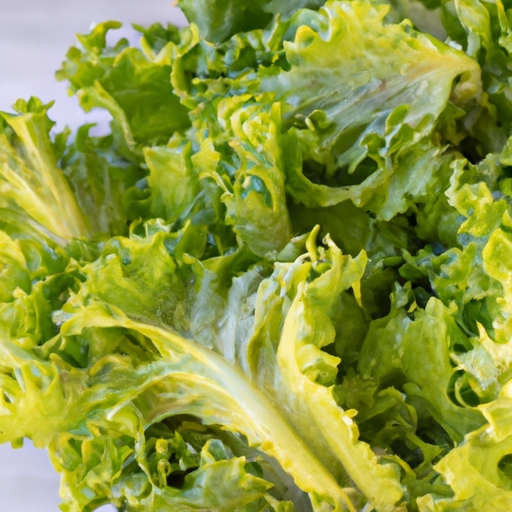Escarole
Description

Escarole, known scientifically as Cichorium endivia, is a leafy green vegetable and member of the chicory family. With broad, curly, and slightly bitter leaves, it resembles lettuce and is often used in salads, soups, and sautéed dishes. Escarole is a staple in Mediterranean cooking and has found its way into American and European kitchens, where it's valued for its versatility and nutritional profile.
Common uses
Escarole is commonly used raw in salads, where its slightly bitter flavor adds a unique dimension. It can also be cooked in a variety of ways, such as braising, sautéing, or adding to soups and stews. The robust leaves hold up well to heat and absorb flavors beautifully, making it a popular choice for warm dishes.
Nutritional value
Calories
A serving of escarole (about 1 cup or 85 grams) contains approximately 10 calories (42 kilojoules).
Protein
Escarole provides about 1 gram of protein per serving.
Fat
This leafy green is virtually fat-free, with less than 0.1 grams of fat per serving.
Carbohydrates
Escarole contains about 2 grams of carbohydrates per serving.
Vitamins
It is rich in vitamins A and K, with a serving providing a significant percentage of the recommended daily intake for these nutrients.
Minerals
Escarole is also a good source of minerals like potassium and iron.
Health benefits
Escarole is lauded for its health benefits, including its high vitamin content which supports eye health and immune function, and its dietary fiber which aids in digestion. The antioxidants present in escarole can help combat inflammation and protect against certain diseases.
Potential risks
While escarole is generally safe for consumption, individuals who are sensitive to bitter flavors may find it unpalatable. Additionally, those on blood-thinning medications should monitor their vitamin K intake due to its blood-clotting effects.
Common recipes
Escarole is often found in classic Italian wedding soup, escarole and bean dishes, and hearty winter salads.
Cooking methods
It can be braised, boiled, sautéed, or left raw to preserve its crisp texture and slightly bitter taste.
Pairing with other ingredients
Escarole pairs well with rich flavors like bacon, garlic, and anchovies, as well as with acidic components like lemon juice or vinegar to balance its bitterness.
Summary
Escarole is a nutritious and flavorful leafy green with a slightly bitter taste and versatile use in the kitchen. It offers various health benefits due to its high vitamin and mineral content, and can be prepared in numerous ways to complement a variety of dishes. Its presence in global cuisines highlights its adaptability and popularity among different cultures.